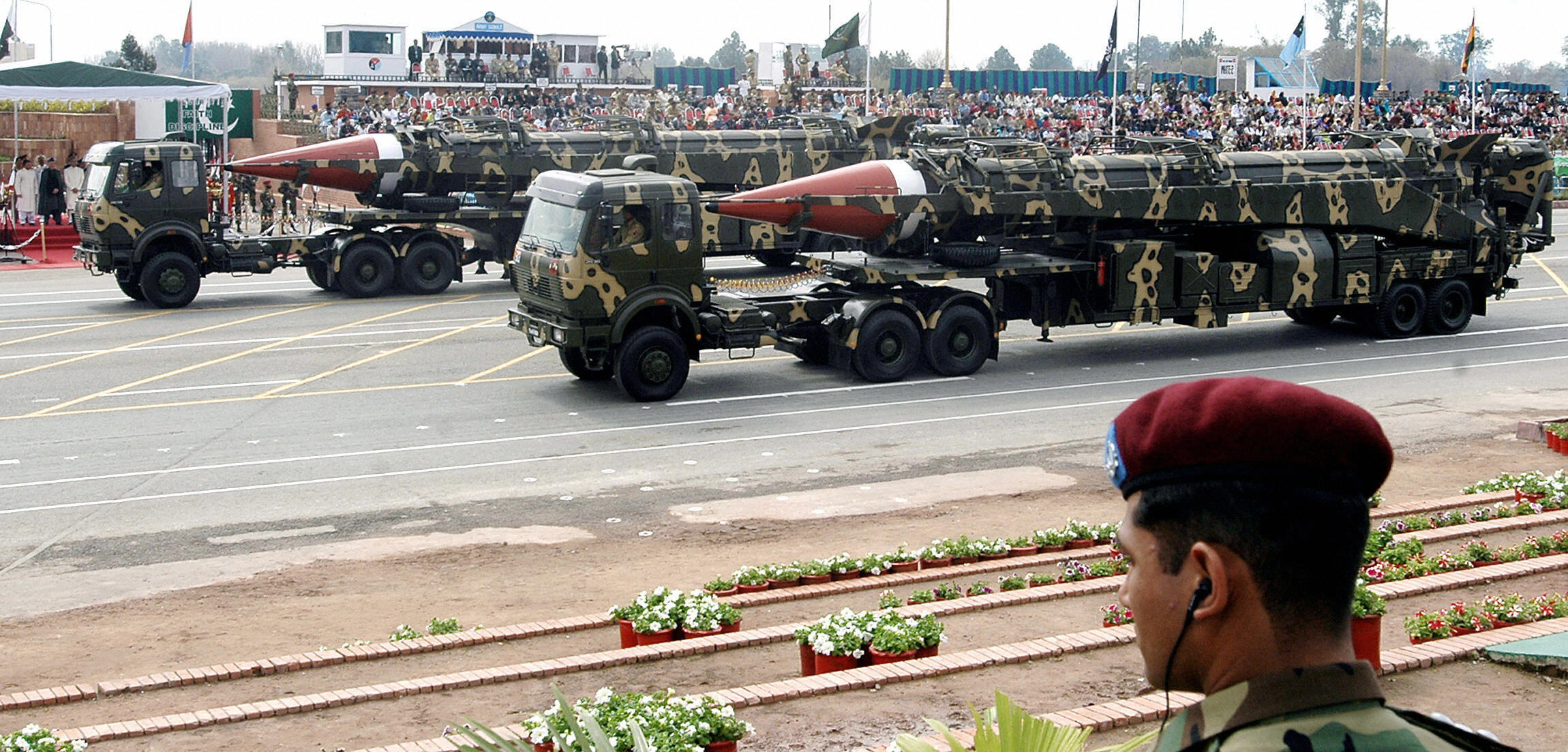
Pakistan is on track to become the world’s fifth largest nuclear power by 2025, according to a report released by a U.S.-based independent research organization on Monday.
The report by Chicago-based think tank Bulletin of the Atomic Scientists predicts that the South Asian nation’s stockpile of nuclear weapons will more than double over the next decade from its current arsenal of 110 to 130 warheads.
The report’s estimate of 220 to 250 warheads based on “Pakistan’s performance over the past 20 years and its current and anticipated weapons deployments” could potentially place it just behind the U.S., Russia and France, and nearly on par with China’s current stockpile of 250.
The report’s release coincides with Pakistani Prime Minister Nawaz Sharif’s visit to the U.S. this week, where Reuters reports he is expected to tell President Barack Obama that limits on Pakistan’s use of small tactical nuclear weapons are unacceptable. Such weapons, Pakistan says, are essential to any potential conflict with its neighbor and fellow nuclear power India — with which it has fought three wars since their independence in 1947.
While India’s current nuclear doctrine espouses a strict “no-first use” policy, Pakistan’s does not provide any such guarantee — particularly when it comes to India.
“Pakistan’s nuclear program is … India-centric,” a Pakistani security official familiar with the country’s nuclear program told Reuters. “And it exists to make war a nonoption.”
The Bulletin report recognizes this fact as well, highlighting two main considerations while analyzing Pakistan’s projected nuclear expansion.
“Two key factors,” it says, “will be how many nuclear-capable launchers Islamabad plans to deploy, and how much the Indian nuclear arsenal grows.”
More Must-Reads From TIME
- The 100 Most Influential People of 2024
- Coco Gauff Is Playing for Herself Now
- Scenes From Pro-Palestinian Encampments Across U.S. Universities
- 6 Compliments That Land Every Time
- If You're Dating Right Now , You're Brave: Column
- The AI That Could Heal a Divided Internet
- Fallout Is a Brilliant Model for the Future of Video Game Adaptations
- Want Weekly Recs on What to Watch, Read, and More? Sign Up for Worth Your Time
Write to Rishi Iyengar at rishi.iyengar@timeasia.com